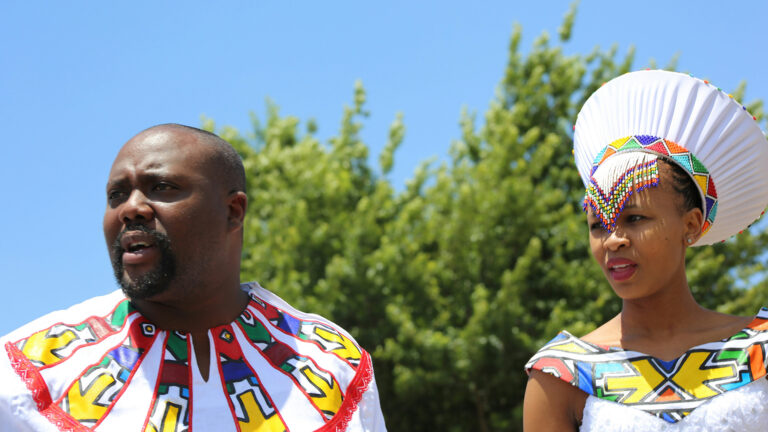One Friday, mid-morning, over 2000 years ago, three men hang on three crosses atop Calvary hill. The one in the middle claimed to be the Son of God. In essence, he equated himself with God. Those either side of him were known criminals. The Bible tells us of a conversation. Put differently, in the Gospel accounts we read about two reactions to Jesus but only one response from him. These are recorded in Matthew, Mark and Luke. In this article, we will look at them through the eyes of Luke.
A Conversation on Three Crosses
Luke writes: One of the criminals who were hanged railed at him, saying “are you not the Christ? Save yourself and us!” But the other rebuked him, saying “do you not fear God, since you are under the same sentence of condemnation? And we indeed justly, for we are receiving the due reward of our deeds; but this man has done nothing wrong.” And he said, “Jesus, remember me when you come into your kingdom.” And Jesus replied “truly, I say to you, today you will be with me in paradise” (Luke 23:39-43).
The two thieves represent the two majority reactions of people in the face of pain
One of the criminals reviled Jesus. Mocking Jesus, he questioned his deity in light of their common predicament. The other criminal rebuked the reviler and then went ahead to plead for mercy. He asked Jesus to remember him. The second criminal acknowledged the deity of Christ, despite their common situation. In the end, the Son of God responds to only one of them: the criminal who asked to be remembered. Jesus made a promise to him. He told the criminal that he would be with Jesus in paradise.
Two Similar Responses Today
Whenever we are confronted by disease, natural disasters, divorce, debt, distressing times and other devastating difficulties we react differently. I have observed that the two thieves on the cross in some ways represent the two majority reactions of people in the face of pain and problems. Some question the goodness of God and others ask for mercy. Both acknowledge God. But the former do so in order to put him on trial. The latter place their trust in Him.
From one camp we get questions like:
- How can a good God allow such suffering in the world?
- If God is so powerful, how come He is not able to stop suffering?
- If God is all knowing, why does He not prevent disaster before it happens?
From the other camp we get a response similar to Peter in John 6:68-69, “Lord, to whom shall we go? You have the words of eternal life, and we have believed, and have come to know, that you are the Holy One of God”
My Imitation of the First Criminal
In my brief 36 years on this earth, I have faced my fair share of troubles. When I got married, over ten years ago, the officiating priest let us know that we would have children in double digits. One of the elders later stood up and endorsed that message. However four years later, after two painful miscarriages, we did not yet have any children. In addition to those I had to undergo a myomectomy and suffered from a drug induced endometriosis, as well as menopause. Just when we thought it could not get any worse, doctors told us we could not have children without outside help: IVF.
I was well at home with the first criminal. For I questioned God. I questioned his power, knowledge and love
If I said that I responded like the second criminal on the three crosses at Calvary, I would be lying. I was well at home with the first criminal. For I questioned God. I questioned his power, knowledge and love. My anger exploded and I experienced wide-ranging pain: from the spiritual to the physical. The process of riling against God spiralled downwards. Firstly, we engaged in the blame game. Just as is recorded in John 9:2 when Jesus heals the man born blind, we asked ‘who is to blame?’
“Who Sinned?”
We asked ourselves: ‘who sinned?’ Who failed to do what was expected of them to cause us all this pain and suffering? Everyone was analysed. Being Africans, we raised questions about the dowry payment procedures. Was there anything requested that was not given? Could there be an angry elder somewhere that needed appeasing? Other factions suggested that special prayers, by special holy men, together with sacrifices were necessary. The COVID-19 situation that we find ourselves in is not unlike my own personal suffering. For it has caused many to ask similar questions. We have broadly assigned blame to the many people we suppose responsible.
When we suffer we typically have two reactions: turning away from the Saviour or embracing him more tightly
Following hotly on the heels of the blame game, we separated into the two camps: those questioning and testing God; and those trusting and depending on him. All of this echoes the conversation on the three crosses. When we suffer, facing disaster or extreme disappointment, we typically have two reactions: turning away from the Saviour or embracing him more tightly.
Jesus Also Loves the Doubters
For those who embrace Christ, how do we walk with our doubtful brothers? How do we care for and minster to those beset by fear, hesitant to embrace the Saviour? How do we escape the allure of pride and easier path of distancing ourselves from doubters? I am reminded of what Jesus did with Thomas. Jesus appeared among the disciples but Thomas wasn’t present. Thus Thomas did not believe the report of the others.
He doubted, categorically stating, “unless I see in his hands the mark of the nails, and place my finger into the mark of the nails, and place my hand into his side, I will never believe” (John 20:25). Well, Jesus showed up again. This time, Thomas is there with the rest of the disciples. Jesus told him “put your finger here, and see my hands; and put out your hand, and place it in my side. Do not disbelieve, but believe” (John 20:27).
The greatest gift we can give to those who doubt and question is to show them Jesus
Brothers and sisters, the greatest gift we can give to those who doubt and question, who are tempted to to pull back, is to show them Jesus. Show them the proof of his love. Point out his scars. Show them the Word that became flesh and dwelt amongst us. In so doing, we will see ourselves, as we really are: sinful, wretched, separated from God, and in need of a Saviour. Show them in the words of R.C Sproul, “that the only time a bad thing happened to a good person was when Jesus was nailed on the cross.” We are not good. No we are not. Only God is good. This is the one response that is needful.












